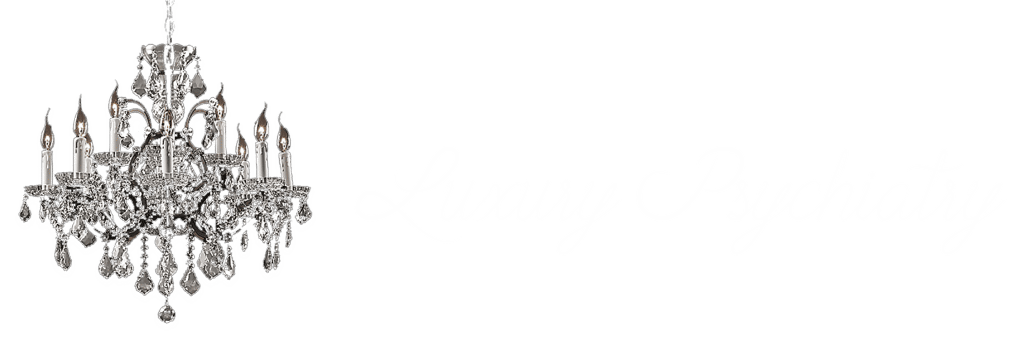Zoloft (sertraline), a selective serotonin reuptake inhibitor (SSRI) commonly prescribed to treat depression, anxiety disorders, and other mental health conditions, can sometimes cause insomnia as a side effect. While Zoloft effectively increases serotonin levels to help manage symptoms of depression, anxiety, and obsessive-compulsive disorder, some patients may experience sleep problems, including difficulty falling asleep or staying asleep. Insomnia, as a common side effect of Zoloft, can disrupt normal sleep patterns and impact overall sleep quality. Patients experiencing sleep disturbances while taking Zoloft should consult their healthcare provider to explore treatment options, such as cognitive behavioral therapy for insomnia (CBT-I), sleep aids, or adjustments to their treatment plan to achieve better sleep.
What is Zoloft (Sertraline)?
Zoloft, known by its generic name sertraline, is a widely prescribed antidepressant that belongs to a class of medications called selective serotonin reuptake inhibitors (SSRIs). It is commonly used to treat a range of mental health conditions, including major depressive disorder, social anxiety disorder, panic disorder, obsessive-compulsive disorder (OCD), post-traumatic stress disorder (PTSD), and premenstrual dysphoric disorder.
Zoloft works by increasing serotonin levels in the brain, a neurotransmitter linked to mood regulation. By enhancing serotonin reuptake, Zoloft helps alleviate symptoms of depression and anxiety, although it may cause side effects such as drowsiness, dry mouth, and sleep disturbances, including insomnia. Healthcare providers often prescribe Zoloft as part of a comprehensive treatment plan, which may include psychotherapy or cognitive behavioral therapy (CBT), to support better mental health outcomes.
Is Zoloft Insomnia Permanent?
Insomnia caused by Zoloft (sertraline) is typically not permanent for most patients, but its duration can vary based on individual factors. As with other SSRIs, Zoloft may disrupt sleep patterns, particularly during the initial stages of treatment. Many patients experience sleep disturbances such as trouble falling asleep or waking up frequently during the night. These issues are often temporary and may resolve as the body adjusts to the medication over time. However, for some individuals, Zoloft insomnia can persist longer, potentially requiring intervention from a healthcare provider to address these ongoing sleep problems.
If insomnia remains a problem, there are several treatment options available. Healthcare professionals may suggest adjusting the dosage, switching the time of day the medication is taken, or incorporating complementary strategies such as cognitive behavioral therapy for insomnia (CBT-I) to improve sleep quality. In some cases, supplements like melatonin or sleep aids might be recommended, though these should only be used under the guidance of a healthcare provider. Maintaining good sleep hygiene—such as sticking to a regular sleep schedule, optimizing the sleep environment, and practicing relaxation techniques—can also help mitigate sleep disturbances while taking Zoloft. If insomnia continues to disrupt daily functioning, it’s important to consult with a healthcare professional to explore personalized solutions.
Why Does Zoloft Cause Insomnia?
Zoloft (sertraline) can cause insomnia due to its impact on serotonin levels in the brain. As a selective serotonin reuptake inhibitor (SSRI), Zoloft works by increasing serotonin, a neurotransmitter that helps regulate mood, but it can also influence sleep patterns. While serotonin plays a key role in stabilizing mood and managing symptoms of depression, its interaction with other neurotransmitters involved in sleep regulation, such as melatonin, can lead to sleep disturbances. This disruption can make it harder for some individuals to fall asleep or stay asleep, particularly in the early stages of treatment.
Additionally, Zoloft’s stimulating effects on the central nervous system can contribute to difficulty sleeping. Although the medication helps reduce symptoms of anxiety disorders, panic disorder, and obsessive-compulsive disorder, its activation of certain brain pathways may cause heightened alertness or restlessness in some patients, leading to insomnia. Individual responses to Zoloft vary, and some people may experience more pronounced side effects like insomnia, while others may not. For those struggling with sleep disturbances, healthcare providers may adjust treatment plans or recommend therapies like cognitive behavioral therapy for insomnia (CBT-I) to address these challenges.
What Else Does Zoloft Cause as a Side Effect?
In addition to insomnia, Zoloft (sertraline) can cause a variety of side effects that range from mild to severe. As with most medications, not everyone will experience the same side effects, but it’s important to be aware of potential adverse effects when starting treatment with Zoloft. Here are some common and less common side effects of Zoloft:
- Drowsiness
- Dry mouth
- Nausea
- Dizziness
- Headache
- Fatigue
- Diarrhea
- Loss of appetite
- Increased sweating
- Sexual dysfunction
- Weight changes
- Agitation or restlessness
- Tremors
- Difficulty concentrating
- Increased anxiety, especially at the beginning of treatment
- Changes in sleep patterns or REM sleep
- Risk of sedation
- Blurred vision
More serious side effects can include serotonin syndrome, a rare but life-threatening condition, or an increased risk of suicidal thoughts, particularly in young adults and adolescents. It’s essential to consult your psychiatrist or healthcare provider if you experience any of these side effects, especially if they persist or worsen. A healthcare professional can assess whether adjusting the dosage, changing medications, or exploring alternative treatment options is necessary to improve your overall mental health and minimize side effects.
What to Do If You Have Insomnia
If you experience insomnia while taking Zoloft, there are several strategies that can help manage this side effect and improve your sleep quality. Insomnia caused by Zoloft is often manageable, especially when combined with lifestyle changes and support from a healthcare provider. Here are some effective strategies to consider:
- Speak with your mental health professional: Your psychiatrist or healthcare provider can adjust the dosage, recommend taking Zoloft at a different time of day, or suggest alternative medications if sleep problems persist.
- Practice good sleep hygiene: Maintain a consistent sleep schedule, avoid caffeine and heavy meals before bedtime, and create a relaxing pre-sleep routine.
- Consider cognitive behavioral therapy for insomnia (CBT-I): This evidence-based therapy helps address the underlying thought patterns and behaviors that contribute to insomnia.
- Use relaxation techniques: Meditation, deep breathing exercises, and progressive muscle relaxation can help calm your mind and body, making it easier to fall asleep.
- Optimize your sleep environment: Make your bedroom as conducive to sleep as possible by keeping it dark, quiet, and cool, and investing in comfortable bedding.
Managing insomnia often involves a combination of approaches tailored to your individual needs. It’s important to work closely with your healthcare provider to ensure that your treatment plan supports both your mental health and sleep quality. With the right strategies, you can reduce sleep disturbances and enjoy better overall well-being while taking Zoloft.
Consult with Luxury Psychiatry Today
If you’re experiencing insomnia or other side effects while taking Zoloft, addressing these concerns early can significantly improve your treatment experience and overall mental health. At Luxury Psychiatry Clinic, our team of experienced mental health professionals is dedicated to providing personalized care that meets your unique needs. Whether you’re dealing with sleep disturbances, anxiety disorders, or symptoms of depression, we offer a comprehensive range of treatments, including medication management and advanced therapies like TMS and ketamine therapy.
Don’t let insomnia or other side effects interfere with your path to better mental health. Reach out to Luxury Psychiatry today for an initial consultation, and let us help you find the best treatment plan to support your well-being and improve your quality of life.

















